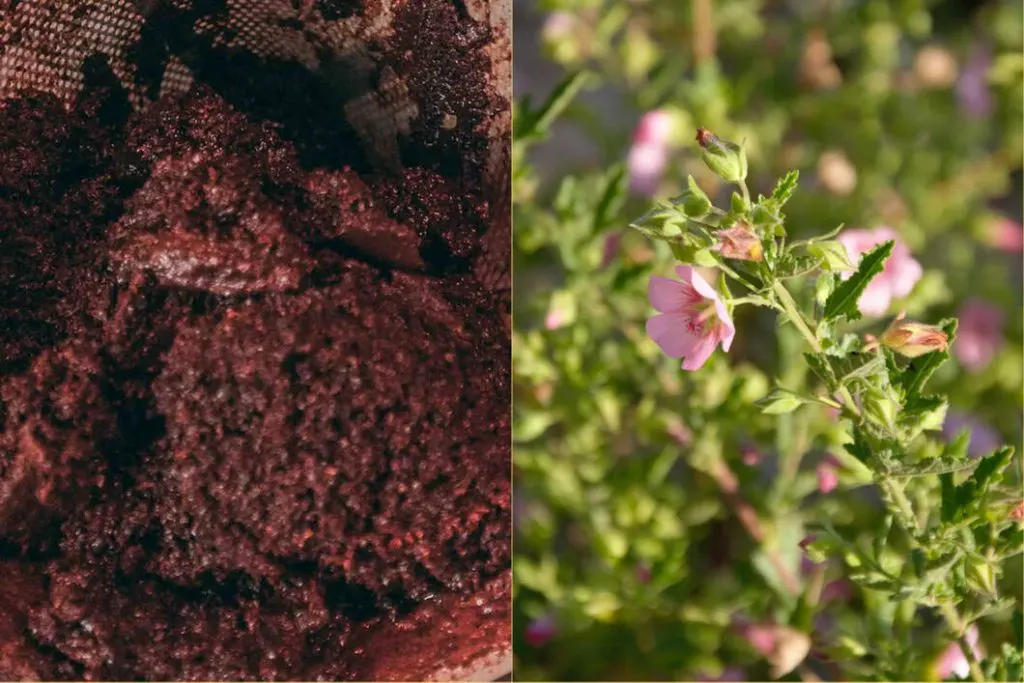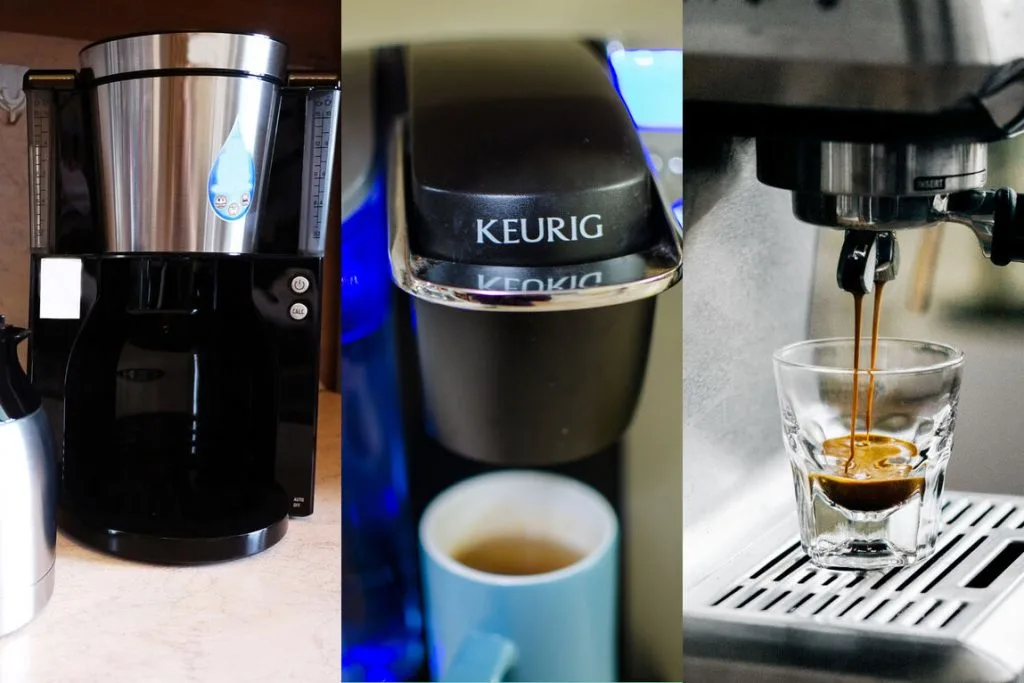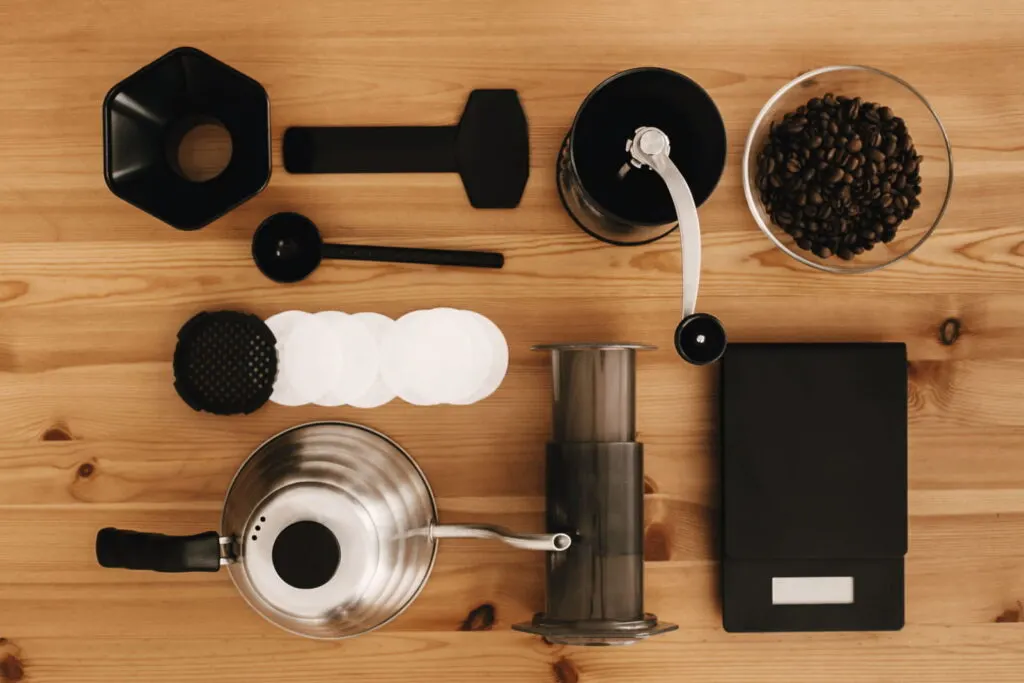Coffee is part of daily for almost everyone these days, and every who drinks coffee at home has their own preferred brewing method. Brewing coffee comes with used coffee grounds, which must somehow be disposed of. These grinds get easily caught or clogged in coffee machines and drain pipes. Removing the grounds can be a challenge, which leads to the question, what dissolves coffee grounds?
It is very difficult to dissolve coffee grounds without damaging the materials around them. Strong acids and cleaners can dissolve coffee grounds, but a better option is to use a product such as Cafiza that is designed to break down and remove coffee grounds safely and effectively.
Coffee grounds can be very difficult to remove if they have clogged a drain or become lodged in a coffee machine. There are many home methods for cleaning coffee grounds, but few actually dissolve them. What dissolves coffee grounds? Let’s find out!
Disclaimer: Hi! this post may contain affiliate links which will take you to online retailers that sell products and services. If you click on one and buy something, I may earn a commission, see my Affiliate Disclosure for more details.
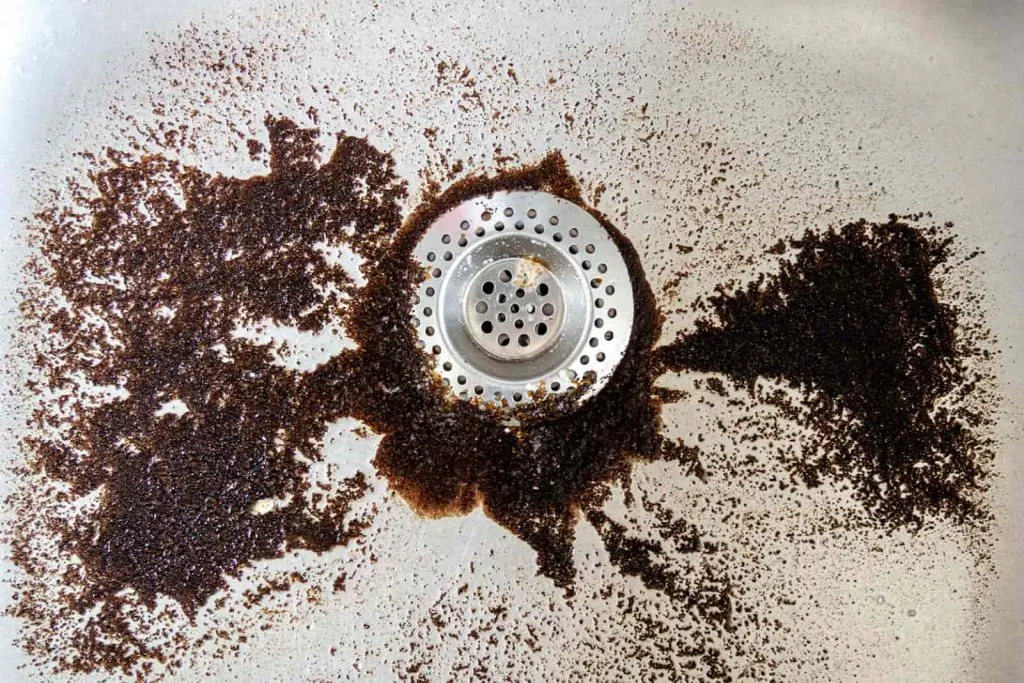
Why Are Coffee Grounds So Difficult To Dissolve?
Brewing coffee, regardless of the method used, always leaves behind some measure of spent coffee grounds. These grounds can be used as fertilizer or recycled in other ways, but the reality is that they are usually discarded.
Discarded coffee grounds can cause problems in kitchen plumbing as they are very likely to cause blockages in sinks, pipes, and garbage disposals.
Brewing coffee every day also leaves behind a small amount of coffee ground in the coffee machine or brewing pot. These leftover grounds can cause problems for coffee machines or brewing filters by becoming clogged within the equipment.
When these problems occur, it can be extremely difficult to remove the coffee grounds. Why are coffee grounds so difficult to dissolve?
The reason it is so difficult to clean out used coffee beans or dissolve them when they have caused a blockage in a machine or in plumbing is because of the size of the grains of the ground coffee and the oils that are released from the grounds when brewing.
It’s true that coffee grounds are very oily. A lot of the moisture leftover on used coffee grounds is oil that has been released from the ground coffee beans during the brewing process.
These coffee oils, combined with the fact that the grains of coffee grounds are incredibly small and fine, means that coffee grinds are very likely to clump together to cause blockages, whether big or small, and they are likely to stick to surfaces.
These oils can be particularly difficult to break down, which makes it a challenge to get a clump of stuck coffee grounds to release or to remove coffee grounds that have caused some sort of blockage.
Coffee grounds are hard organic matter, which is difficult to break down, but they are also saturated with thick oils, which keeps liquids from penetrating and soaking into the grounds.
This makes dissolving coffee grounds incredibly difficult.
Solving this problem has been an issue for coffee drinkers for a long time, and it can be very frustrating when it happens to you. Let’s look at how to dissolve troublesome coffee grounds and some other solutions to this problem.
What Dissolves Coffee Grounds?
Dissolving coffee grounds can be difficult to do. Coffee grounds are far tougher than many realize. Simply running hot water over the coffee grounds is not usually enough to break down the oils and loosen the coffee grounds, and dissolving them requires some very powerful chemicals.
The chemicals that are capable of completely dissolving coffee grounds, for whatever purpose, are very caustic and may cause damage to whatever the grounds are clogged in.
This could be kitchen drains or coffee machine equipment, or even filters for brewing pots such as a french press.
The chemicals that can be used to dissolve coffee grounds are dangerous and should be handled with extreme caution.
One such product that can be used to dissolve coffee grounds is Powdered Brewery Wash (PBW). This caustic cleaner is designed to break down oils and other organic compounds, dissolving them so that they can be cleaned easily.
PBW can be used to break down coffee grounds that have become clogged in plumbing or in coffee pots but should not be used in coffee machines, such as espresso makers, as the product is likely to cause damage to a coffee machine.
There are other products that do not necessarily dissolve coffee grounds but are just as effective at removing stubborn grounds that are causing various types of blockages.
Using caustic cleaners should be a last resort when trying to dissolve coffee grounds, as they are very dangerous to work with.
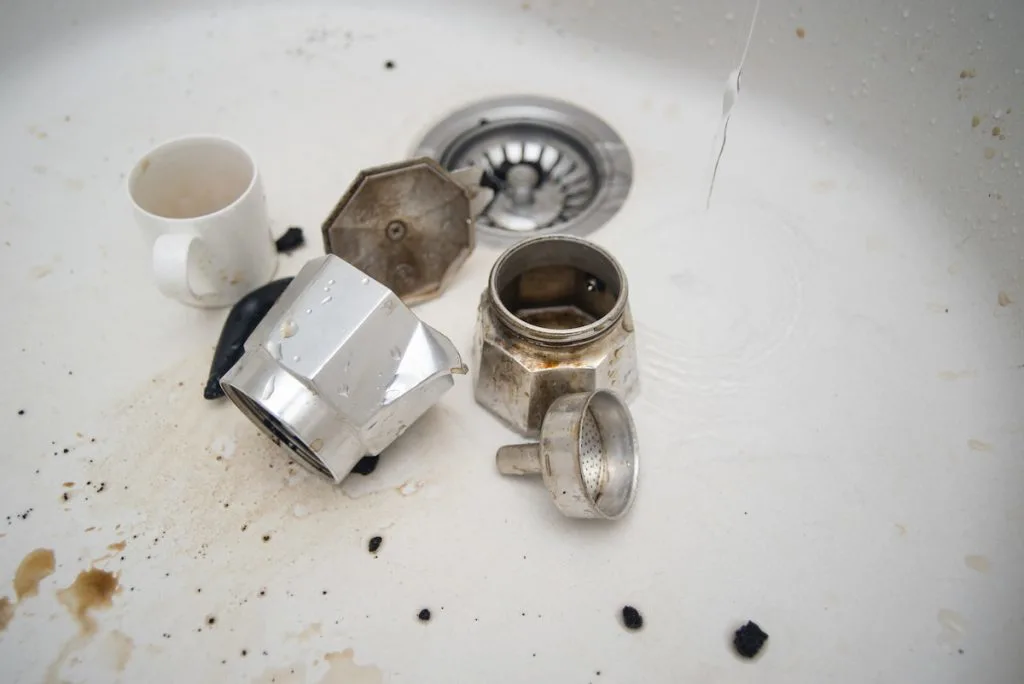
Are There Any Alternatives To Dissolving Coffee Grounds?
When used coffee grounds have become a nuisance, removing them from whatever they have become clogged can be a challenge.
That being said, dissolving coffee grounds is not always the only option for removing them. Dissolving coffee grounds involves using dangerous cleaners and chemicals, but there are other ways to safely remove coffee grounds.
One of the best ways to break down and clean out coffee grounds that have become lodged in pipes or other such plumbing is to use baking soda.
Surprisingly, coffee grounds are more easily broken down by alkaline cleaners than acidic solutions, which is why baking soda works so well for removing it.
It will require a lot of baking soda to break down the oils and the bonds, keeping the coffee grounds stuck together, but with a bit of effort, baking soda can be effectively used to dislodge large clumps of used coffee grounds.
Use hot water with baking soda for the best results!
What Products Can Be Used For Removing Coffee Grounds?
The best way to break down, dissolve, and remove coffee grounds is to use a product that is specifically designed for it.
Urnex Cafiza 2 is a perfect example.
Cafiza is an alkaline cleaning powder that is designed for cleaning coffee equipment and specifically for dissolving and removing coffee grounds from hard-to-reach places such as portafilters and brew heads.
This powder is safe to use if you don’t get it in your eyes, and it will effectively break down the coffee grounds, no matter where they are lodged, soften them, and even completely dissolve them if you leave them to soak for long enough.
Using a product like this is the safest and most effective way to dissolve or remove coffee grounds from coffee equipment or even from kitchen drains.
Products of this type will not cause any damage to any brewing equipment or coffee machine components, nor will they harm any plumbing.
Dissolving coffee grounds is very difficult. It takes caustic chemical cleaners such as PBW to dissolve them quickly, but these products can be dangerous and harmful to work with.
Alternative solutions are to try home methods such as hot water and baking soda, but these may not be entirely effective.
The best way to remove troublesome coffee grounds, or to dissolve them, is to use a product such as Cafiza, which is designed for breaking down coffee grounds so that they can be cleaned from delicate coffee machine equipment.


